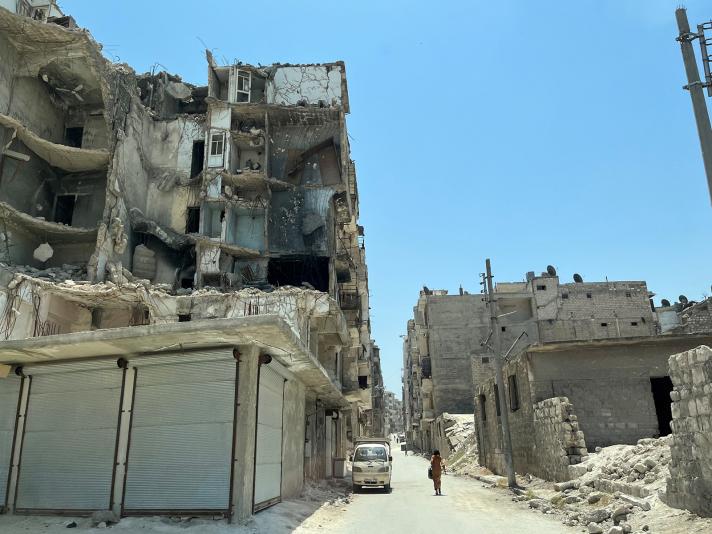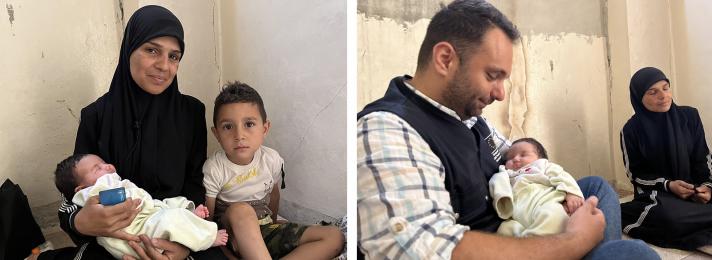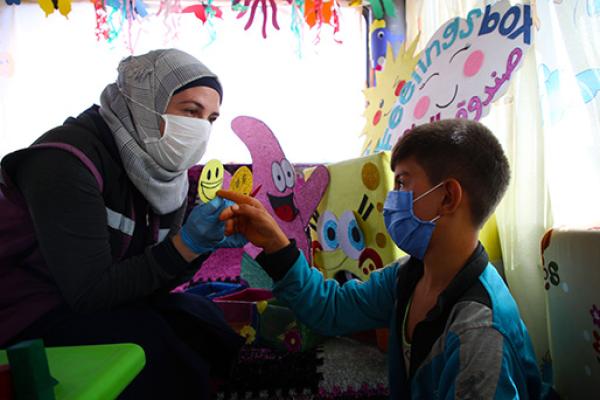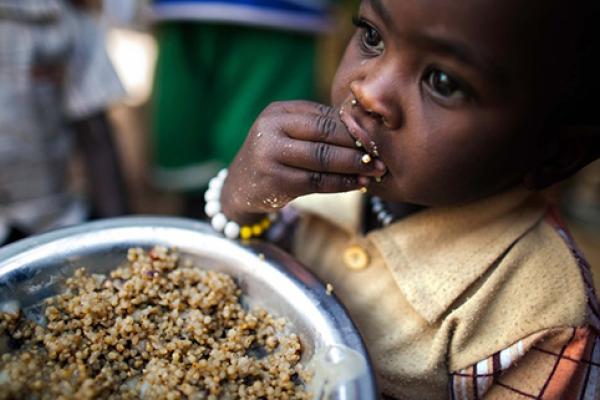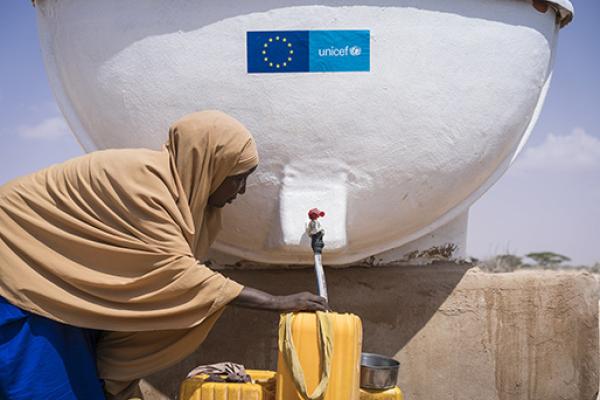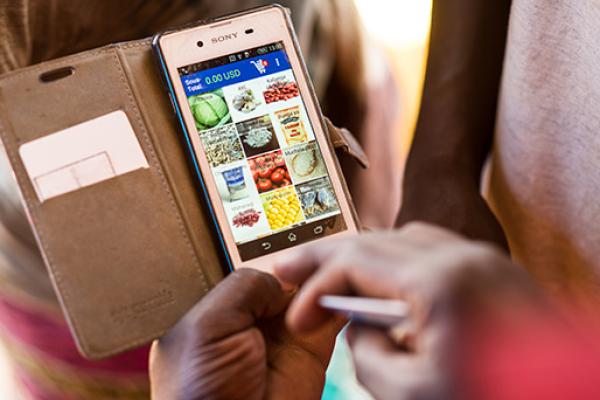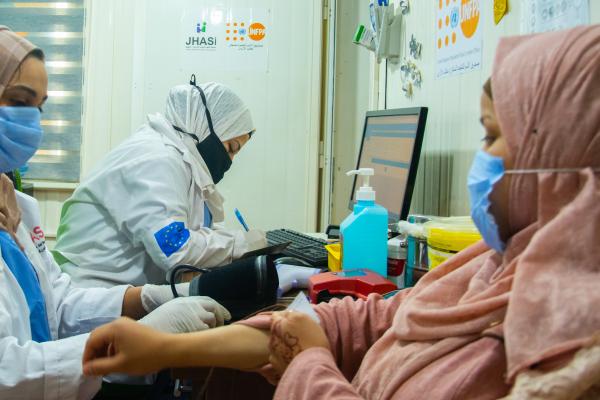Towering high above the city, the citadel of Aleppo – one of the oldest and largest fortresses in the world - stands in stark contrast to the wasteland below. Once Syria’s crown jewel and industrial heartland, Aleppo’s former glory transpires through the rubble and destruction.
It is from Aleppo that trucks with humanitarian aid occasionally drive across the frontline into the non-government controlled part of Syria. But these deliveries are not a solution for the millions of Syrians in need there. Aid brought in via Turkey continues to be the only viable option.
After the battle of Aleppo, one of the fiercest confrontations during the 11-year conflict, the government recaptured a city in ruins at the end of 2016. Aleppo now sits on the fault line between government-controlled and opposition-held areas.
Last year, the United Nations started ‘crossline’ deliveries of humanitarian aid from Aleppo into non-government controlled Idlib governorate. In Northwest Syria, 4.1 million people - 20% more than last year – need humanitarian assistance.
So far, just 5 crossline convoys, of some 14 truck each, have occurred. These crossline convoys only transport aid for thousands, not millions of people, ruling them out as a viable alternative for cross-border aid. In comparison, some 800 aid trucks with 80% of all food assistance cross the border from Turkey each month.
The continuity of this life-saving cross-border operation is at risk. Every year, the UN Security Council votes on the renewal of the resolution allowing this cross-border aid. Just days before the 10 July deadline, concern is palpable.
“Humanitarian needs are at their highest since 2011. After 11 years of conflict, displacement and economic recession, Syrians have exhausted their coping strategies,” says Luigi Pandolfi, head of EU Humanitarian Aid in Syria. “Not renewing the resolution would leave millions of aid-dependent Syrians without food, medicines, and water supply, putting many lives at risk.”
Safe but poor
Meanwhile, in Aleppo, relative safety has returned, but its inhabitants are feeling the crunch of the country’s economic downturn.
In Jabal Badro, one of the poorest neighbourhoods and a major battleground during the recapture of Aleppo, most houses are uninhabited. “Some people came back but decided to leave again,” says Fawaz, a father-of-14. “I used to be a driver, but there is no work now.”
After fleeing in 2012, the family returned 5 years ago. Fawaz registered for EU-funded humanitarian aid provided by Caritas and the World Food Programme (WFP).
The family gets food parcels, hygiene kits and cash assistance. Although they still struggle, Fawaz does not want to leave home again. “Even if you sleep hungry, here, no one will ask you to go.”
Further West in the old walled city, Amineh, who is 9 months pregnant, makes her way through Bab Antakya gate and along narrow alleyways to the WFP centre.
Some 12,000 pregnant or breastfeeding women get a monthly sum of 125,000 Syrian pounds (SYP) uploaded on a card which they can redeem at 20 shops around the city.
“I love cheese,” she says. “And now I can afford it and other things the kids want to eat like mushrooms and chicken.”
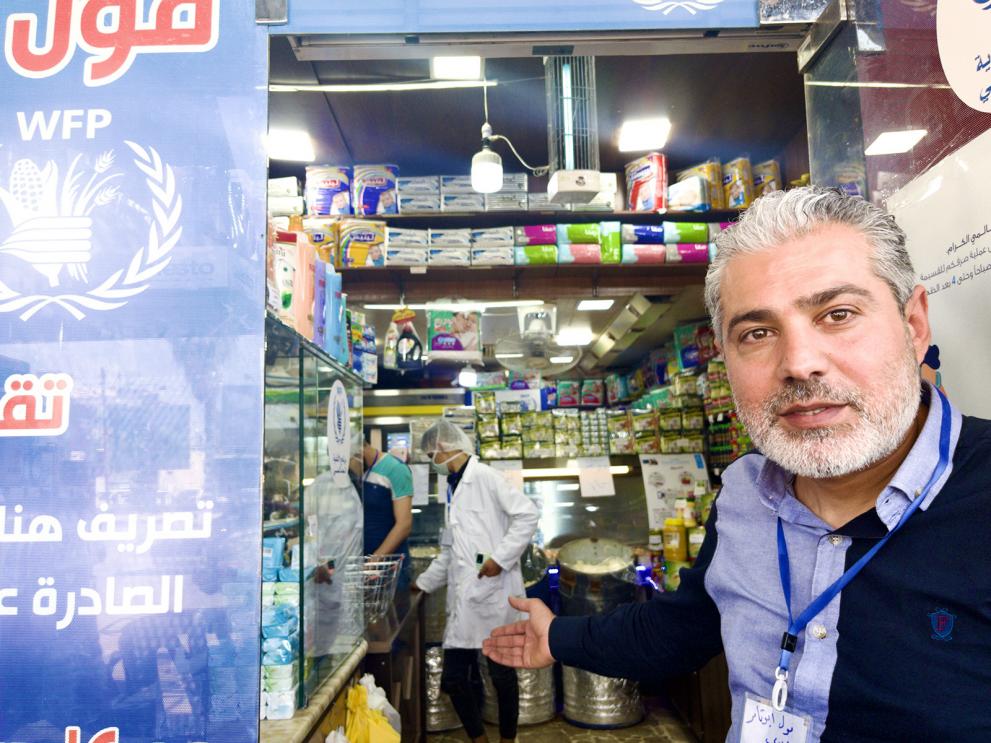
According to one of the 20 shop owners, cheese and diapers are among the most sought-after items together with fruits, vegetables, chicken, dates, cans of tuna, sardines, and detergent.
Amineh’s monthly appointment coincides with a medical checkup by a mobile reproductive health team. To help women in a vulnerable situation, the EU has decided to fund this joint WFP-UNFPA action.
“We were displaced for 6 months,” says Amineh. “But in a way, although it is safer and we no longer fear bombardments, things are harder because of the high cost.”
Where, before, she would ask for a tray of 30 eggs, now she only gets 10 at a time because they are so expensive.
Hyperinflation has plunged almost the entire Syrian population into poverty and food insecurity. Meanwhile, the fighting, the brain drain of health workers, and the destruction of health facilities have contributed to a drastic decrease in life expectancy—20 years in a decade.
Caring for new mothers
In Halwaniya, another ravaged neighbourhood of East Aleppo, Houriyeh once had to pull her son from the rubble. “At 13, he is afraid of everything,” she says.
A mother-of-5 with a 2-month-old baby, she recently lost her husband to cancer. Alone, without family or income, she has no money for rent and is constantly afraid their apartment building might collapse.
“This apartment was empty, so a neighbour told me to take the place. But the building next door fell down,” Houriyeh says. “There are no doors or windows. It rains inside. There is no heating, no sources for electricity.”
She spends her days inside taking care of the children with just a few mattresses, buckets, household items and a mobile phone as meagre possessions.
Luckily, her voucher card gets recharged every month with 125,000 SYP. That is more than a teacher’s salary of 100,000 SYP, but not extravagant given that the price of one litre of cooking oil has tripled to 15,000 SYP since last year, and a chicken costs around 30,000 SYP.
Frail and thin, she continues to receive post-natal care, free of charge, after a C-section. “They really cared for me,” she says. “But now, the most important thing is to feed my children. I hope they will have a better life, not having to go from one place to another. I am very tired.”
Story by Anouk Delafortrie, Regional Information Officer for the Middle East and North Africa, EU Civil Protection and Humanitarian Aid Operations.
Publication date: 04/07/2022

